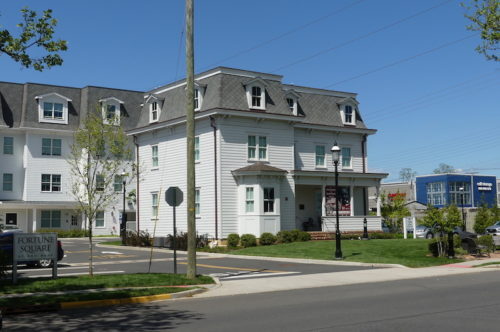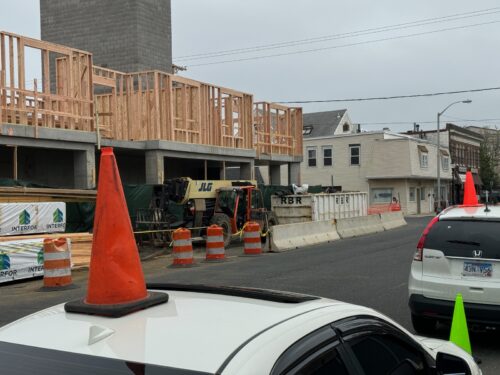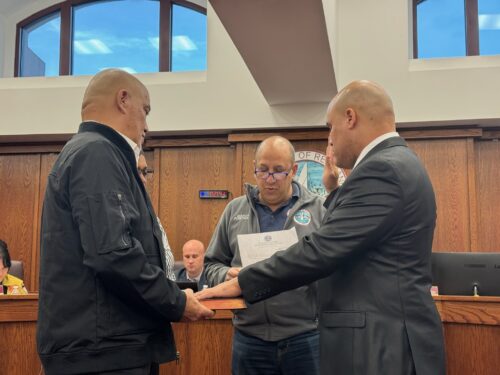
A measure that would have settled a tax appeal by Verizon Inc. on its Broad Street switching station was tabled by the borough council last night after a debate that saw some unusual political splits.
The matter appeared to put the Democratic majority in an uneasy alliance with Republican John Curley and at odds with the attorneys they’d appointed.
At issue was a resolution to approve a negotiated settlement of a tax appeal by Verizon on its four-story building at 183 Broad Street. The deal would reduce the assessment on the property from $3.25 million to $2.8 million.
Annual taxes on the property would drop from about $122,00 a year to about $107,000. Of the difference, about $4,000 goes into Red Bank’s coffers.
Asked to explain the proposed settlement, attorney Tom Hall said Verizon had challenged its assessment on the rationale that only about one-quarter of the building’s floor space is now used, thanks to miniaturization of telecom equipment in the decades since the structure was built.
But because the building serves as a juncture for telephone trunk lines, Verizon can’t easily give it up, and yet its empty space can’t be rented out because it has circuitry running throughout, said Borough Administrator Stanley Sickels. “It’s critical infrastructure,” he said.
Hall said the settlement “was felt, under the circumstances, to be the best outcome for the borough.”
But Curley objected to the deal. “Every time we give a tax break somewhere, the other taxpayers are forced into a further burden,” he said.
“I’m going to vote ‘no’ and send a one-person message to Verizon to wake up, this is 2007,” he said.
At that, Councilman Mike DuPont, who regularly goes nose-to-nose with Curley, weighed in to say that if the matter were to go to trial before a tax court, he’d be OK with that, but “complaining about [the settlement] doesn’t address the legal arguments that Verizon has.”
Soon, Mayor Pasquale Menna, who seemed exasperated by the exchange, jumped in, issuing what he called “a unilateral decision” and directing Hall to take the matter to trial. “Let’s just try the case,” he said.
Curley then asked Menna if he felt “comfortable spending the money” that a trial would take, which prompted DuPont and Menna to shout, simultaneously, “You can’t have it both ways.”
But both Hall and his law partner, Kenneth Pringle, who was also present, appeared intent on conveying a similar message to Menna and DuPont: that the cost of litigating the case could easily exceed the additional taxes brought in by a win.
“You have assesors, appraisers who have to be paid,” Pringle said. Hall estimated that the cost of an appraisal for purposes of having such evidence available in court could alone easily exceed $3,500.
Curley at that point appeared to back away from pushing for litigation, and instead for sending a message. “I think it’s absolutely ludicrous for me to hold something up just to save the borough $4,000, but I believe we need to take some stands with the big businesses in town.”
“If we’re going to take a stand,” Menna said, “it’s a reasonable stand.”
The resolution was put aside, though, after Hall said that there are some 90 tax appeals pending and Pringle suggested that the council get input from the borough assessor on the amounts in dispute and the range of possible settlement amounts.
Here’s the resolution: Download 07-240.pdf





















